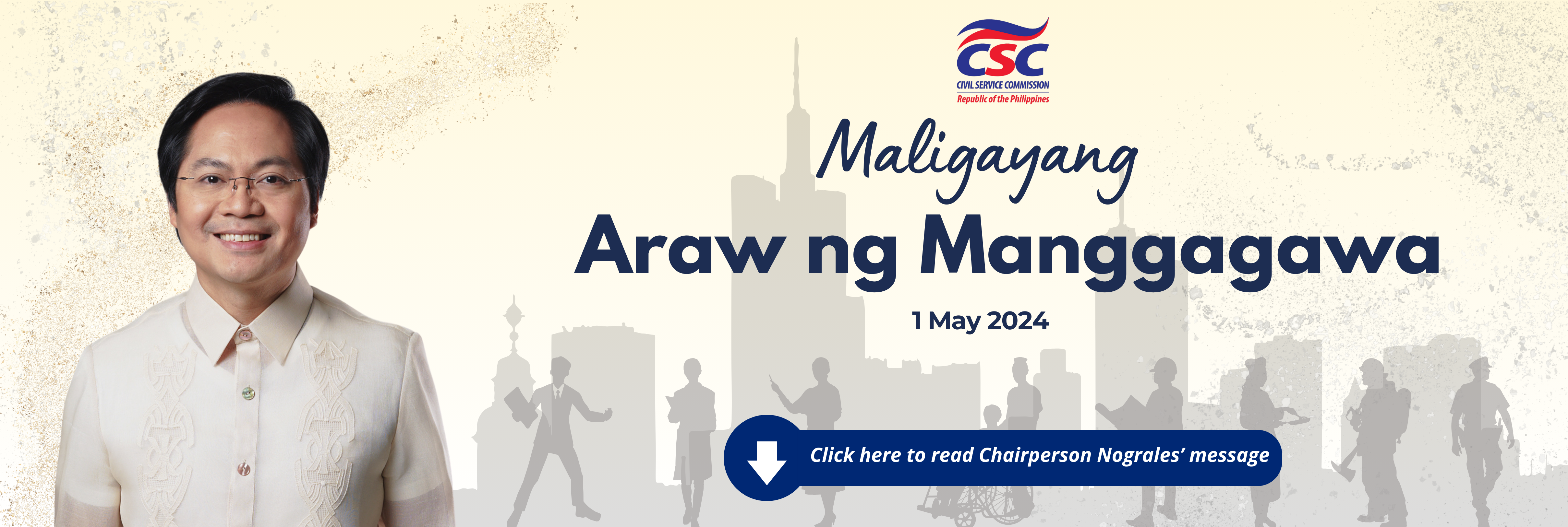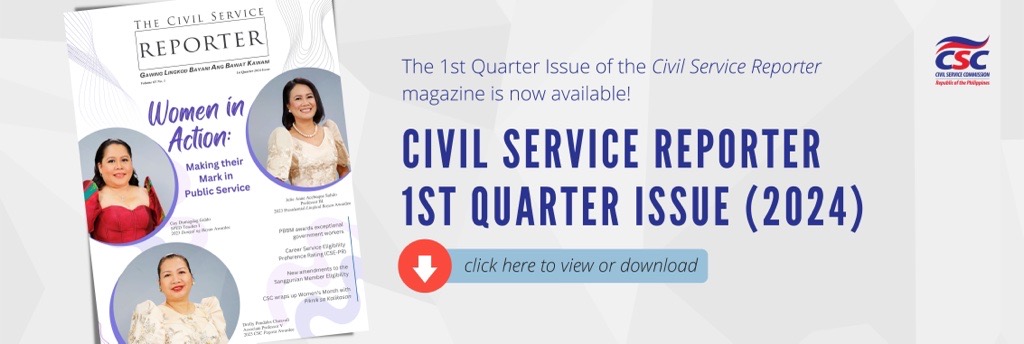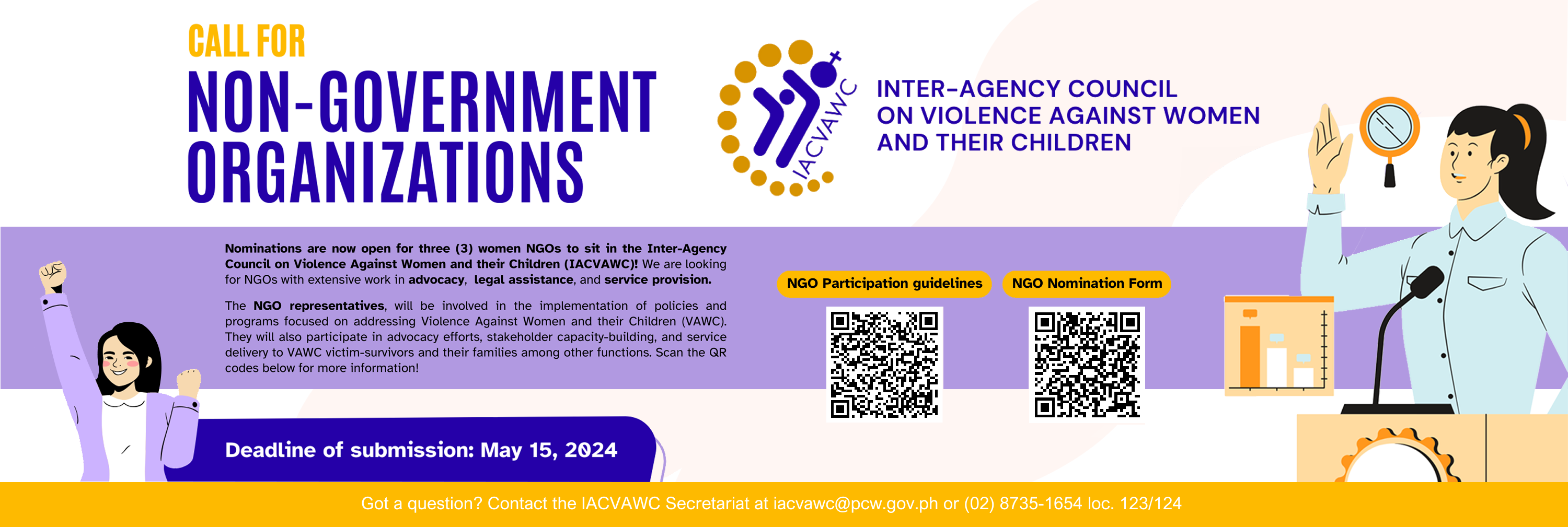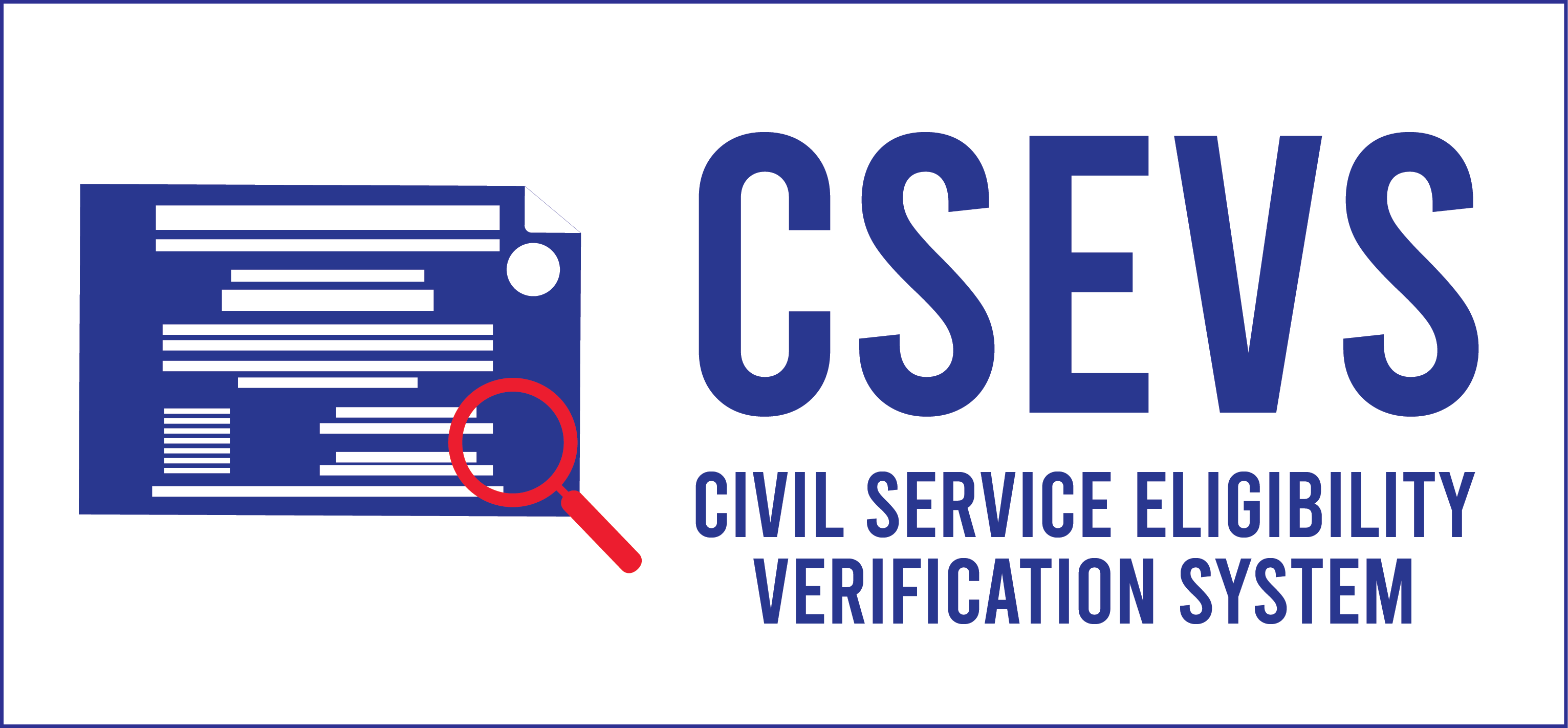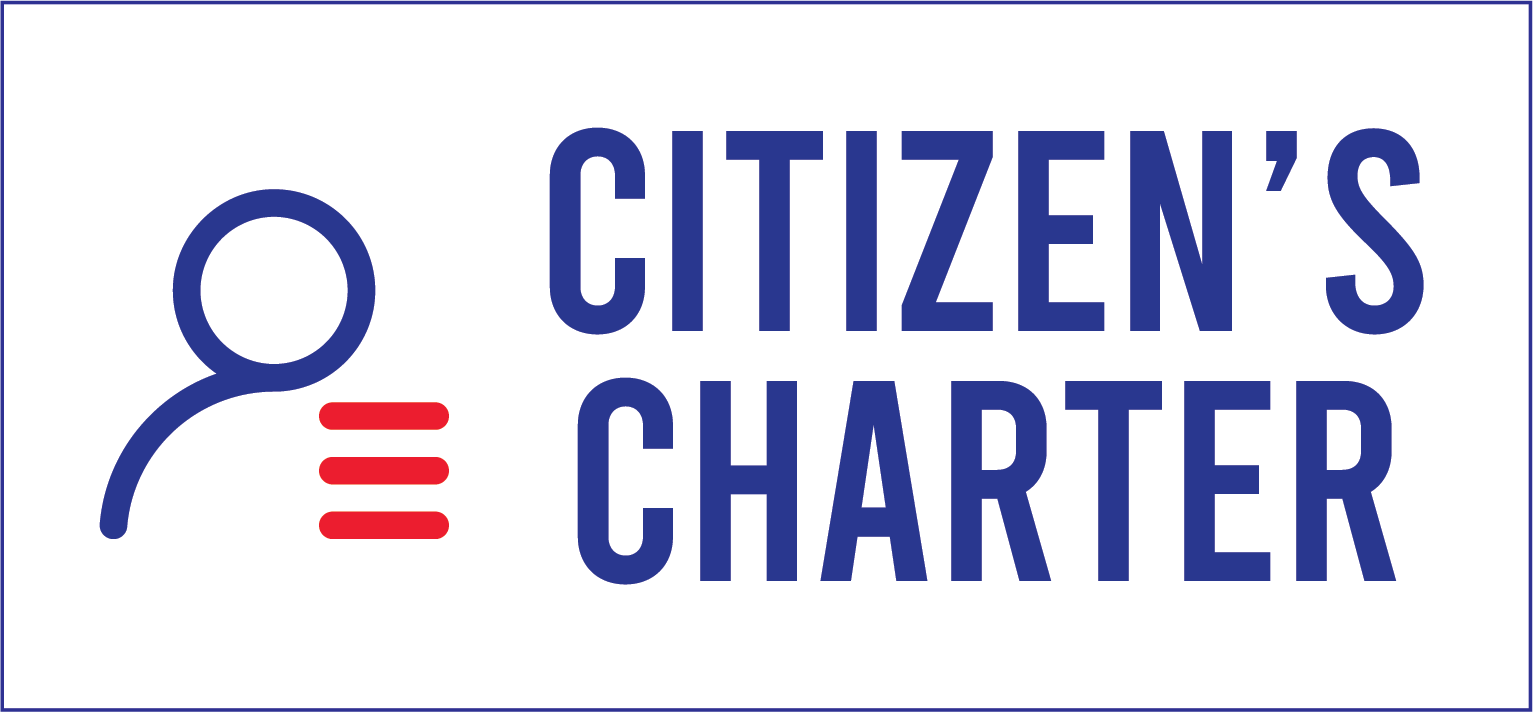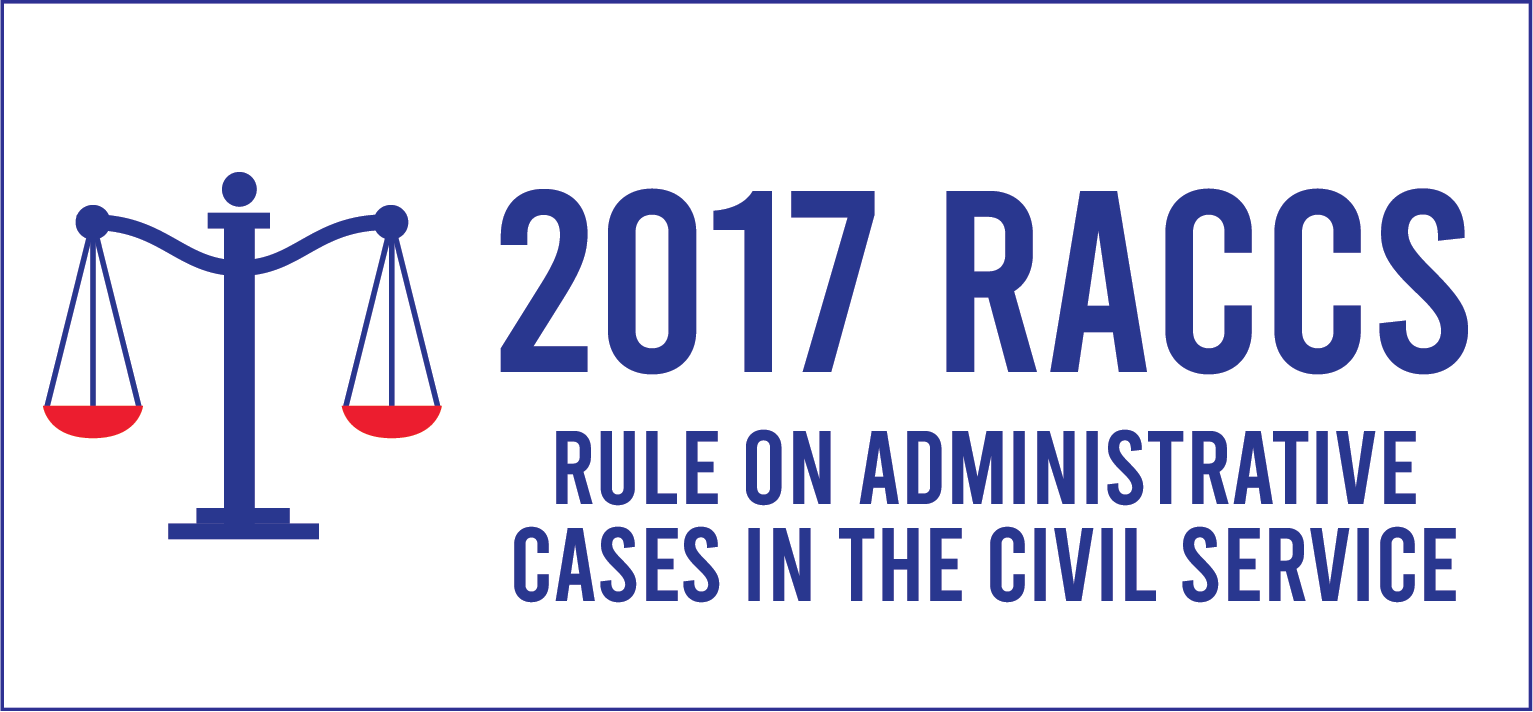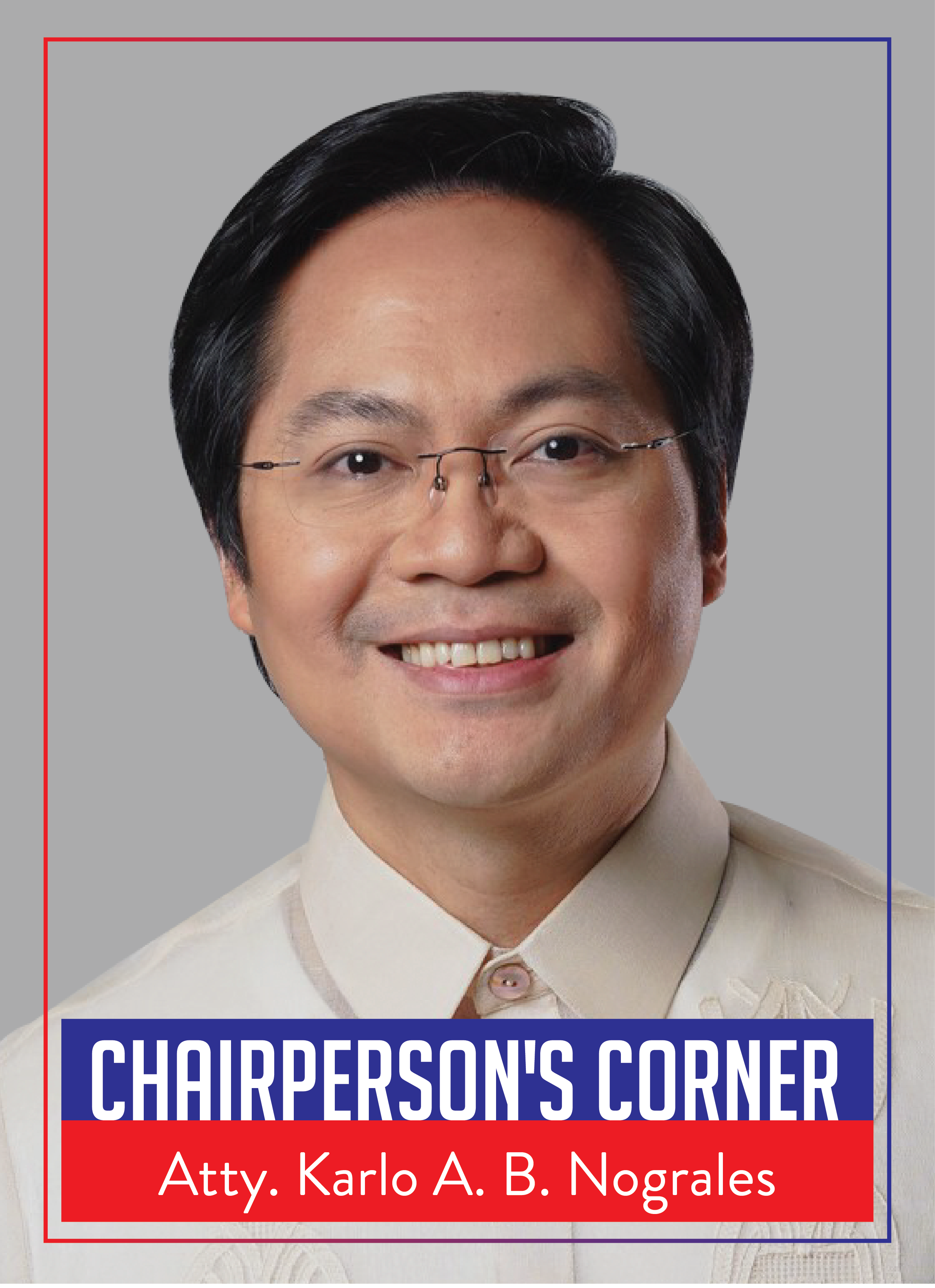- Details
Leaders in management training, life coaching, human resource management and organizational development spearheads the 2018 Public Sector Human Resource Symposium which will be held at the SMX Davao Convention Center from July 18 to 20, 2018.
Close to 2,500 HR professionals from government, the private sector, and member states of the Association of Southeast Asian Nations (ASEAN) will attend the event. With the theme, “Achieving Breakthrough Results through Strategic HR,” this year’s plenary and concurrent sessions highlight concepts, perspectives, and insights in achieving breakthrough results that impact agency operations and delivery of excellent public service.
Read more: CSC spearheads nationwide convergence of human resource practitioners
- Details
Melodies will fill the halls of Tanghalang Nicanor Abelardo at the Cultural Center of the Philippines as eight (8) choral groups perform “Kaya Ko Ang Pagbabago” in the much-awaited Government Choral Competition (GCC) on September 18, 2018.
Entries nationwide were screened by a panel of judges composed of choral experts—Arwin Tan, Jude Roldan, and Maria Theresa Roldan.
The finalists for NCR are the National Power Chorale, City Government of Makati Employees Chorale, and COA CO/NCR Choir; for Luzon, the DepEd Catanduanes Division Choral and Dasmariñas City Teachers' Chorale; for Visayas, the NSU Chorale (Naval State University); and for Mindanao, the Bayugan City Educators Chorale and DepEd Division of Agusan Del Sur Teachers' Chorale.
Read more: Eight groups vie for top prize in Gov’t Choral Fest
- Details
The CSC was awarded with the Silver level accreditation under the Generation 6 Investors in People (IiP) Standard.
“When we command excellence in human resource management, we make sure that the Civil Service Commission walks the talk,”underscored by Civil Service Commission (CSC) Chairperson Alicia dela Rosa-Bala after receiving news of the accreditation, adding that,“The Silver level accreditation is a seal of excellence in organization and people management. This is an excellent achievement for CSC. It validates our commitment toward achieving our vision of being globally recognized as a center of excellence in strategic human resource and organization development.”
Read more: CSC among the best globally for people management practices
- Details
2018 Public Sector HR Symposium
July 18 – 20, 2018 | SMX Convention Center, Davao City, Philippines
ADVISORY
Dear Participant,
Welcome to the 2018 Public Sector HR Symposium!
For your proper guidance in attending this event, we are providing you with the following information:
- Details
PUBLIC SERVICE ANNOUNCEMENT: The Civil Service Commission invites the public to watch and engage in its weekly Facebook Live Program, “Lunchat with CSC”, which will start airing on its Facebook page on July 12, 2018, 12 noon. “LunChat with CSC” will feature talks on CSC’s programs, services, issuances, and other initiatives, and will also answer live questions from the netizens during the program.
LunChat with CSC will air every Thursday, 12 noon via Philippine Civil Service Commission Facebook Page. To get the latest updates and information about the CSC, Follow and Like the page now at www.facebook.com/

